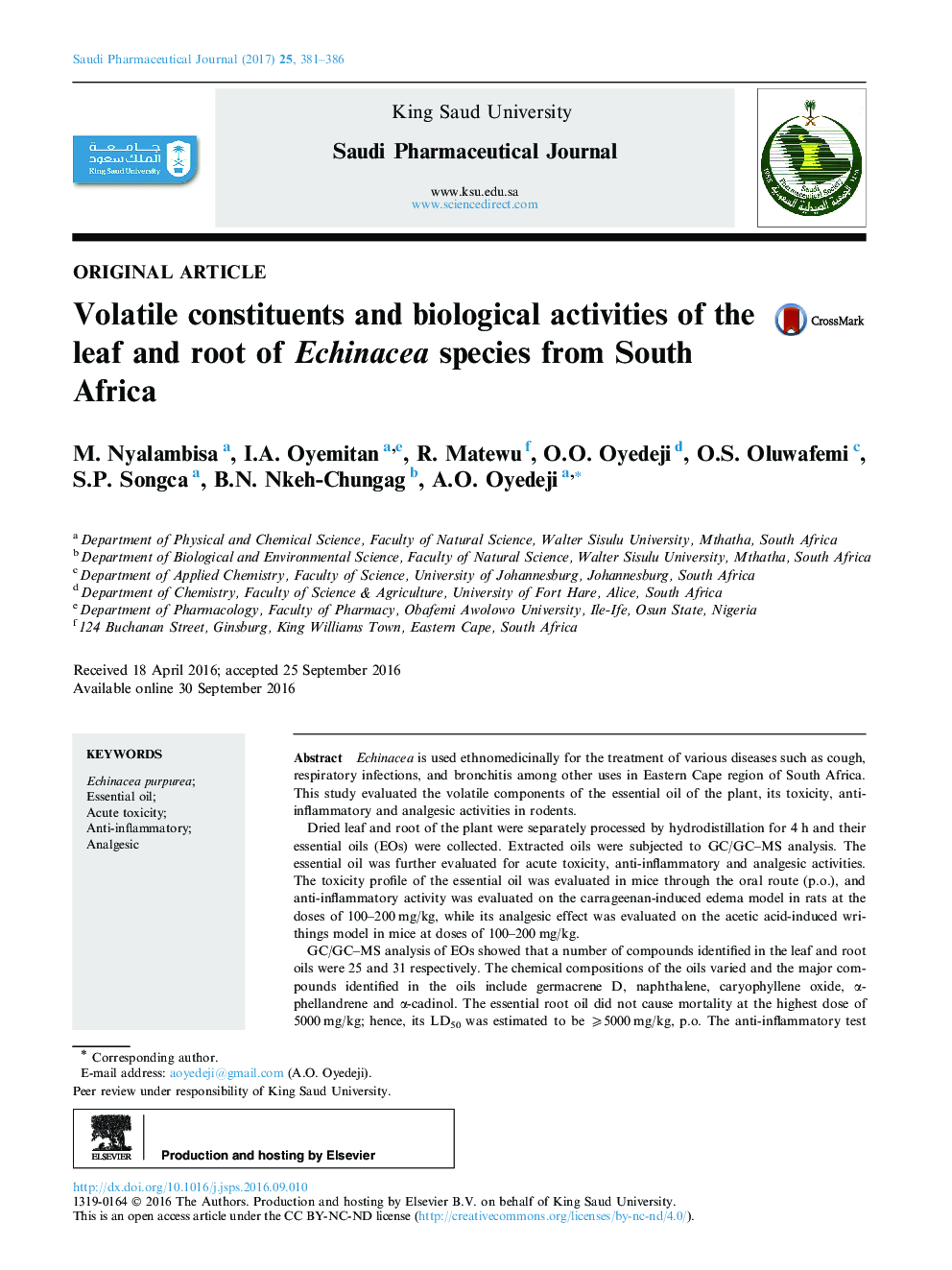| کد مقاله | کد نشریه | سال انتشار | مقاله انگلیسی | نسخه تمام متن |
|---|---|---|---|---|
| 5551528 | 1402951 | 2017 | 6 صفحه PDF | دانلود رایگان |
Echinacea is used ethnomedicinally for the treatment of various diseases such as cough, respiratory infections, and bronchitis among other uses in Eastern Cape region of South Africa. This study evaluated the volatile components of the essential oil of the plant, its toxicity, anti-inflammatory and analgesic activities in rodents.Dried leaf and root of the plant were separately processed by hydrodistillation for 4 h and their essential oils (EOs) were collected. Extracted oils were subjected to GC/GC-MS analysis. The essential oil was further evaluated for acute toxicity, anti-inflammatory and analgesic activities. The toxicity profile of the essential oil was evaluated in mice through the oral route (p.o.), and anti-inflammatory activity was evaluated on the carrageenan-induced edema model in rats at the doses of 100-200 mg/kg, while its analgesic effect was evaluated on the acetic acid-induced writhings model in mice at doses of 100-200 mg/kg.GC/GC-MS analysis of EOs showed that a number of compounds identified in the leaf and root oils were 25 and 31 respectively. The chemical compositions of the oils varied and the major compounds identified in the oils include germacrene D, naphthalene, caryophyllene oxide, α-phellandrene and α-cadinol. The essential root oil did not cause mortality at the highest dose of 5000 mg/kg; hence, its LD50 was estimated to be ⩾5000 mg/kg, p.o. The anti-inflammatory test results showed that the essential root oil caused significant (p < 0.05-0.01) reduction in edema size compared to the negative control group on the carrageenan-induced edema and the results for the analgesic test showed that the essential root oil caused significant (p < 0.05) reduction in number of writhings at 1000 mg/kg compared to the negative control group.It is concluded that root and leaf of this Echinacea species contain volatile oils which varied in their yield and chemical compositions. The essential root oil is non-toxic orally and it demonstrated significant anti-inflammatory and analgesic activities in laboratory animals.
Journal: Saudi Pharmaceutical Journal - Volume 25, Issue 3, March 2017, Pages 381-386
